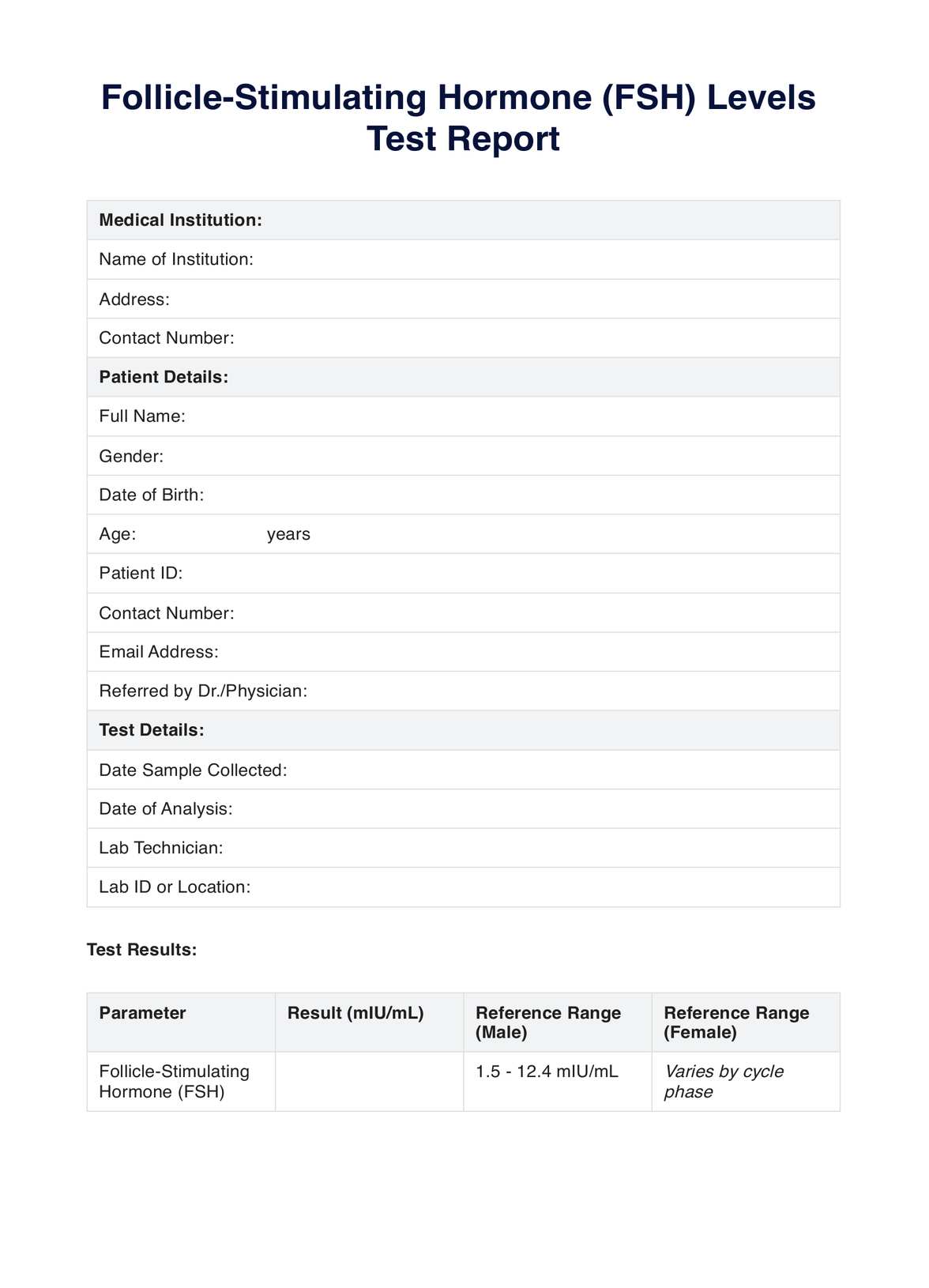Endocrinologists, gynecologists, and fertility specialists typically request an FSH Levels Test.

Follicle-Stimulating Hormone Levels
Understand your reproductive health better with a Follicle-Stimulating Hormone Levels Test from Carepatron�??an accurate, user-friendly, and globally trusted solution.
Use Template
Follicle-Stimulating Hormone Levels Template
Commonly asked questions
The Follicle-Stimulating Hormone Levels Test is used to measure the level of FSH in a blood sample, which can help diagnose various conditions related to reproductive health.
?
The process of drawing blood for the test usually takes a few minutes. However, it may take several days to get the results from the lab.
EHR and practice management software
Get started for free
*No credit card required
Free
$0/usd
Unlimited clients
Telehealth
1GB of storage
Client portal text
Automated billing and online payments











